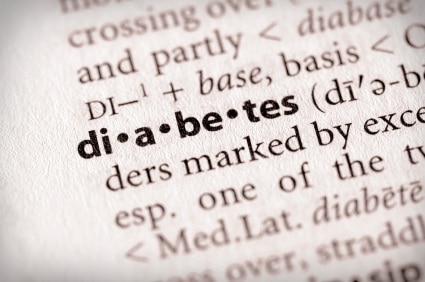 A urine analysis may be used to look for glucose and ketones from the breakdown of fat. However, a urine test alone does not diagnose diabetes.
A urine analysis may be used to look for glucose and ketones from the breakdown of fat. However, a urine test alone does not diagnose diabetes.
The following tests are used to diagnose diabetes:
A. Blood glucose Tests
2. Random (non-fasting) blood glucose level
Diabetes is suspected if higher than 200 mg/dL and accompanied by the classic symptoms of increased thirst, urination, and fatigue. (This test must be confirmed with a fasting blood glucose test.)
3. Oral glucose tolerance test
Diabetes is diagnosed if glucose level is higher than 200 mg/dL after 2 hours (This test is used more for type 2 diabetes.)
You should also ask your doctor how often do you need your hemoglobin A1c (HbA1c) level checked. The HbA1c is a measure of average blood glucose during the previous 2 to 3 months. It is a very helpful way to determine how well treatment is working.
B. Ketone Testing
Ketone testing is another test that is used in type 1 diabetes. Ketones are produced by the breakdown of fat and muscle, and they are harmful at high levels. The ketone test is done using a urine sample. High levels of blood ketones may result in a serious condition called ketoacidosis.
Ketone testing is usually done at the following times:
- When the blood sugar is higher than 240 mg/dL
- During acute illness (for example, pneumonia, heart attack, or stroke)
- When nausea or vomiting occur
- During pregnancy
There is no cure for diabetes. Treatment involves medicines, diet, and exercise to control blood sugar and prevent symptoms and complications. Read Treatments for Diabetes to learn more about the different treatments and the best way to deal with diabetes.
Other SeniorCareHomes.com Helpful Links:
- Seniors Online Community & Discussion Forum
- Senior Care Facility Search
- Senior Facility Registration
Catharine “Kate” is a Certified Administrator for Residential Care Facilities for the Elderly (RCFE) and an Expert Senior Care Advisor. Kate’s grandmother battled Alzheimer’s Disease and Kate personally understands what millions of families are going through. Kate and her team are very passionate in empowering Seniors and their families by providing them with the Best Available Senior Care Options based on Senior’s care needs, preferred location and family’s budget.



